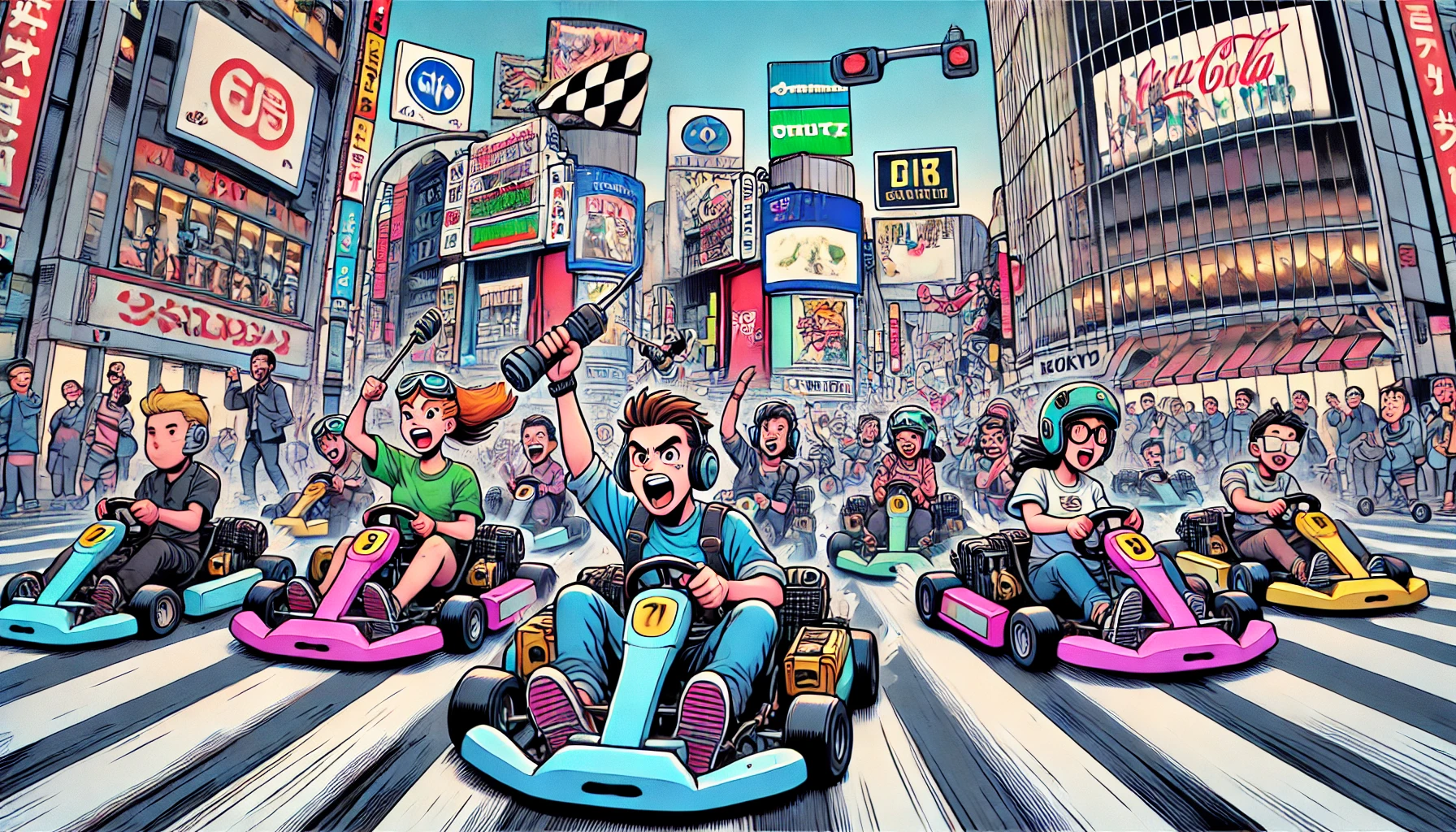
If you’ve ever walked through Shibuya or Roppongi and heard the roar of tiny engines and the laughter of costumed tourists zipping by in go-karts, you’ve probably witnessed the infamous “real-life Mario Kart” experience. Services like Shibuya Kart and MariCAR have become popular among foreign tourists eager to drive through Tokyo’s iconic streets dressed as video game characters.
But while it might look like fun from a tourist’s perspective, how do the locals really feel about it? Here’s what we’ve found from recent feedback across social media, local news, and public opinion online.
😡 Noise, Nuisance, and Negativity
Many Tokyo residents have voiced frustration with the go-kart tours. Complaints range from excessive engine noise to rowdy shouting by drivers—especially during the evening hours.
Local residents in areas like Shibuya and Minato Ward have reported being kept awake at night due to loud revving and shouting. Some even describe the go-kart groups as “disruptive” and “unpleasant,” with comments such as “I had to wear noise-cancelling headphones in my own apartment” becoming more common.
Parents and schools have also raised safety concerns about these karts operating near school zones during commuting hours. Drivers—who are often unfamiliar with Japanese traffic rules—have occasionally ignored signs or driven recklessly, creating anxiety for pedestrians and cyclists alike.
Even taxi drivers have voiced concern, with one saying, “We have to be extra careful around them—they suddenly swerve or ignore traffic signals.”
🏁 Tourism Boom or Trouble?
Despite the backlash, there are those who see go-kart tours as a net positive. For many, they symbolize the return of inbound tourism and inject a sense of excitement into Tokyo’s streets.
Local governments acknowledge the popularity among tourists, especially because the routes pass major landmarks like Tokyo Tower and the Shibuya Scramble Crossing. On social media, some Japanese users even posted, “Tourism must be back—saw the go-karts again!” and “Foreigners look like they’re having a blast. Kinda fun to watch.”
In the broader context, Japan’s tourism sector is still recovering from the pandemic. For businesses catering to international visitors, activities like go-kart tours are lucrative and easy to market on platforms like TikTok and Instagram.
⚠️ Legal Loopholes and Safety Issues
The legality of go-karting on public roads may surprise many. These vehicles are classified under Japan’s Road Traffic Act as “mini-cars” and can be legally operated with a standard driver’s license. Helmets are not required, and the vehicles themselves offer little to no physical protection.
This raises concerns, especially as accidents involving foreign tourists have occurred in the past. In 2018 alone, 42 accidents involving go-karts were reported in Tokyo, most involving international drivers.
Due to these safety and noise concerns, Tokyo wards like Shibuya and Minato have started tightening regulations. New ordinances require operators to register with local authorities, and stricter rules on where and when tours can operate are being discussed.
👀 What Locals Are Saying Online
Here’s a quick snapshot of actual sentiments from forums and social platforms in Japan:
- “They scream while driving, and it’s incredibly annoying.”
- “They pass my kid’s school at full speed. Totally unsafe.”
- “Fun for tourists, a headache for everyone else.”
- “I understand the appeal, but not at the cost of peace and safety.”
While some are amused by the sight of Mario characters zooming past Tokyo Tower, many Tokyoites are now calling for stricter rules, if not a complete ban, on public road karting.
Final Thoughts
Tokyo’s real-life “Mario Kart” phenomenon has become a symbol of Japan’s unique tourism offerings—but also a lightning rod for criticism from locals. As Japan continues to balance economic recovery with urban livability, it remains to be seen how long these go-kart tours will stay on the road.
Whether you find it quirky or questionable, one thing is certain: tourists love it, and locals are divided.



















































